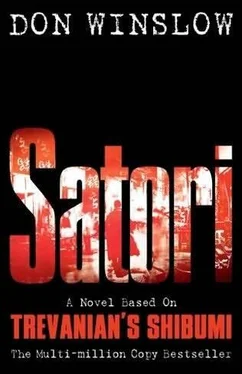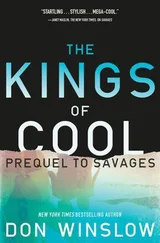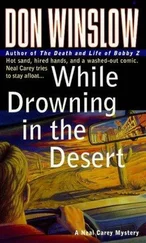“What does that mean?”
She trained the full force of her green eyes on him and smiled. “Why not?”
“Good,” Diamond said, his throat tight. “Good. Uhh, do you need a taxi? Where are you staying?”
“At the Manoly,” she answered. “I can walk, thank you.”
“I could walk with you.”
She stopped walking and looked at him. “What are you asking now, Monsieur Gold?”
“I think you know,” Diamond answered, summoning up his nerve with the thought that the woman was, after all, a glorified whore. “I mean, you said you were looking for work.”
She laughed. “But not that desperately.”
They quickly made the necessary arrangements for her trip to Saigon and he walked away hating her.
But the whore will serve her purpose, he thought. The file said that Hel had fallen in love with her and intended to return to her. Good – if the son of a bitch is alive, he’ll come find her in Saigon.
And I have connections in Saigon.
Solange made sure that the disgusting American wasn’t following her, and then returned to her hotel and had a mint tea in the quiet of the shady garden.
Saigon, she thought.
Very well, Saigon.
Nicholai had yet to surface and she had to face the probability that he never would. Men die and men disappear, and a woman must take care of herself. The abhorrent “Gold” was right that Saigon was a congenial city, French in many ways.
THEY REACHED THE RIVER LATE THAT AFTERNOON.
Nicholai had to admit it was something of a shock.
Early in winter, he had expected the Lekang to be at its lowest flow. Still, beyond the long eddy where the waiting rafts were beached on the pebbled shore, the river ran fast, full, and angry.
The roar of water running shallowly over rock was impressive, even intimidating, but there was no time for trepidation. Nicholai worried that Ki might take another shot here where they would be pinned down without cover on the narrow strip of beach. He was glad to see that Yu had posted two of his “true believers” to cover the trail.
“We need to get loaded,” he said to Yu.
Yu shouted some orders and his soldiers helped the porters carry the crates onto the rafts, where the boatmen lashed them down. The head boatman, a squat middle-aged Tibetan with a cigarette in his mouth, approached Nicholai.
“Are you Guibert?” he asked in American-accented English that Nicholai knew too well from his years in his cell, listening to the American guards converse in what passed for their native tongue.
“That’s me.”
“I lost two men just getting down here.”
“They’ll be reborn well.”
The boatman shrugged his indifference at the concept of reincarnation. This life was plenty to deal with at the moment. “I’m Tasser.”
He didn’t offer his hand.
“Michel Guibert.”
“I know that. Did you bring the money?”
“Yes.”
“Give.”
“Half now,” Nicholai said, “half when we get to Luang Prabang.”
Tasser scoffed and looked at the roaring river. “Give me the whole megillah now. In case we don’t make it to Luang.”
“It’s your job to see that we do make it,” Nicholai said. He counted out half the money and handed a wad of bills to Tasser. “By the way, where did you learn your English?”
Tasser pressed the fingers of his right hand together and made a swooping arc. “American flyboys. They’d crash their crates into the mountains and I’d get what was left of them down. War had gone a couple of more years, I’d be sitting pretty.”
“Could we speak in Chinese instead?”
“I don’t pollute my mouth with that foreign tongue,” Tasser said in Chinese. He switched back to English. “You got any decent smokes?”
“Gauloises.”
“Frenchie shit? No thanks.”
“Suit yourself.”
“I will,” Tasser said. “So what’s in the crates?”
“None of your business.”
Tasser laughed, then crumpled up one of the bills and tossed it into the water. “You gotta grease the river gods,” he explained. But one of his men scrambled downstream, retrieved the bill, and brought it back to Tasser.
Nicholai raised an eyebrow.
“They’re gods,” Tasser said. “What are they gonna do with cash?”
Nicholai walked away and found Yu nervously peering back up the trail. He took out a cigarette and handed it to the colonel.
“Back at the monastery,” Yu said, “you didn’t fight like a man motivated just by profit.”
“Yes, I did.”
“Do not fool yourself,” Yu said. “You believe in a cause, even if you don’t yet know what it is.”
“I believe in my own freedom.”
“Individual freedom is bourgeois illusion,” Yu answered. “You should give it up.”
“I won’t, if you don’t mind.”
“Just get the weapons to their destination,” Yu said.
“You have my word.”
They shook hands.
Nicholai walked back to the rafts. “Let’s get going!” he yelled, and the boatmen pushed off.
The river quickly swept them away.
The river slowed and flattened.
For a distance that Nicholai judged to be a couple of miles, the water ran fast but evenly, and he had a chance to peruse the rafts and their crews.
The rafts were about fifteen feet wide and made of buoyant logs tightly lashed together, although with enough give to allow some flexibility. They had hardly any draft and seemed to roll easily over the shallows. Long oars were laid on the sides, although the crew didn’t need them in this current. A canopy had been stretched over poles at the aft, with a charcoal stove just in front. The crates were stacked in the middle of the raft and tightly lashed to boltholes that had been drilled in the sides.
The crewmen, four to each raft, were all Tibetan, with squat bodies, full faces, and skins darkened by the sun. They sat cross-legged at the sides, near the oars, and enjoyed the respite given by this relatively benign stretch of river.
“I never pictured Tibet as having much of a river trade,” Nicholai said to Tasser.
“You got that right.”
“How did you learn to do this?”
“Crazy Brits,” Tasser answered. “They’re always going up or down something. Up mountains, down rivers. As long as it’s crazy and dangerous. Before the war, a bunch of wiseguys from Oxford wanted to be the first to go down the Lekang. They needed a ‘river sherpa.’ I was a kid, needed the moola, and thought, ‘What the hell.’ ”
“Did they make it down?”
“Most of ’em.”
“All the way to Luang Prabang?”
“I dunno,” Tasser said.
“What do you mean?” Nicholai asked.
Tasser looked at him and smiled. “I’ve never been down this stretch of the river.”
Nicholai felt the water quicken beneath him and looked downriver, where a cloud of mist suddenly appeared.
“What’s that?” he asked.
Tasser took a map from his pocket and spread it out. Nicholai looked over his shoulder and the map appeared to be more of a picture, a cartoon, really, of the river, with drawings of tall peaks and midstream boulders. Tasser considered for a moment, and then hollered over the increasing rush of water, “That would be the Dragon’s Throat!”
“The Dragon’s Tail?”
“The Dragon’s Throat !” Tasser shouted, pointing at his Adam’s apple. He looked at the “map” again and asked, “What the hell does ‘Level 5’ mean, ya think?”
A few seconds later, he answered his own question.
“Holy shit!”
The first fall was only twenty feet but it crashed onto a broad shelf of rock that would certainly smash the rafts to pieces.
Nicholai felt the bow pitch forward, grabbed on to a line, and held on. There was nothing else to do.
Читать дальше












